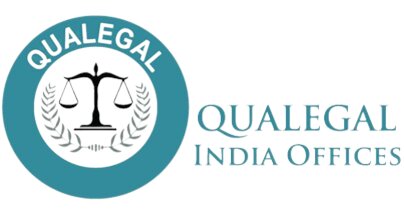Best Franchising Lawyers in New Delhi
Share your needs with us, get contacted by law firms.
Free. Takes 2 min.
List of the best lawyers in New Delhi, India
About Franchising Law in New Delhi, India
Franchising in India, including New Delhi, falls under the regulatory purview of several laws, such as the Indian Contract Act, 1872; the Trademarks Act, 1999; the Competition Act, 2002, and others. It doesn't have specific franchising legislation; thereby franchise agreements are crucial and must be prepared meticulously. While franchising offers a route for business expansion, ineffective agreements or disputes can lead to significant issues.
Why You May Need a Lawyer
Franchising involves complex legal documents and negotiations that require a thorough understanding of the laws. Misunderstandings and disagreements often arise over areas like intellectual property rights, contract interpretations, fee payments, terminations, or non-compliances. An experienced lawyer can guide you with contract drafting, negotiations, dispute resolutions, and ensure your rights are adequately protected.
Local Laws Overview
Few of the crucial aspects relevant to franchising in New Delhi are:
The Indian Contract Act, 1872: The base foundation for franchising contracts. The Act governs all aspects of the agreement including offer, acceptance, consideration and breach of contract. It ensures fairness and transparency in the process.
The Trademarks Act, 1999: Crucial to protect your brand identity, logos, and symbols that form the essence of franchising.
The Competition Act, 2002: Important for anti-competitive practices. It prevents franchises from creating any form of monopoly or unfair trade practices.
Frequently Asked Questions
1. Are there any specific franchising laws in New Delhi?
No specific franchise laws exist in India. It's governed by a combination of laws including the Indian Contract Act, Trademarks Act, the Competition Act, and others. Legal advice is crucial to navigate through these multiple regulations.
2. What are the common disputes that arise in franchising?
Disputes often occur regarding fee payments, operational controls, renewals, terminations, intellectual property rights, or contract breaches. Legal assistance can help resolve or even prevent these disputes from occurring.
3. How can a lawyer assist in franchising?
A lawyer can help in drafting contracts, safeguarding intellectual property, negotiating terms, ensuring compliance with relevant laws, and resolving disputes should they arise. Lawyers guarantee your rights are protected and obligations are clearly outlined.
4. Can a franchise agreement be terminated?
Franchise agreements are legally binding contracts and turning back can have financial implications. The conditions for termination are typically included in the agreement itself. A lawyer can walk you through the implications and legal process of termination.
5. What laws protect a franchisee's rights in India?
Franchisee's rights are primarily protected under the Indian Contract Act, 1872, apart from other laws. It's important to have the franchise agreement properly drafted to specify the rights and obligations. Legal assistance is crucial to ensure the protection of these rights.
Additional Resources
You may find additional information and resources from:
- India's Ministry of Corporate Affairs: www.mca.gov.in
- The Competition Commission of India: www.cci.gov.in
- Intellectual Property India: www.ipindia.nic.in
Next Steps
If you're seeking legal assistance for franchising in New Delhi, start by searching for lawyers specializing in franchising law. Prepare a list of questions you have, and any pertinent details or documentation. Arrange a consultation with your selected lawyer to discuss your circumstances and understand how they can help.
Lawzana helps you find the best lawyers and law firms in New Delhi through a curated and pre-screened list of qualified legal professionals. Our platform offers rankings and detailed profiles of attorneys and law firms, allowing you to compare based on practice areas, including Franchising, experience, and client feedback.
Each profile includes a description of the firm's areas of practice, client reviews, team members and partners, year of establishment, spoken languages, office locations, contact information, social media presence, and any published articles or resources. Most firms on our platform speak English and are experienced in both local and international legal matters.
Get a quote from top-rated law firms in New Delhi, India — quickly, securely, and without unnecessary hassle.
Disclaimer:
The information provided on this page is for general informational purposes only and does not constitute legal advice. While we strive to ensure the accuracy and relevance of the content, legal information may change over time, and interpretations of the law can vary. You should always consult with a qualified legal professional for advice specific to your situation.
We disclaim all liability for actions taken or not taken based on the content of this page. If you believe any information is incorrect or outdated, please contact us, and we will review and update it where appropriate.

















